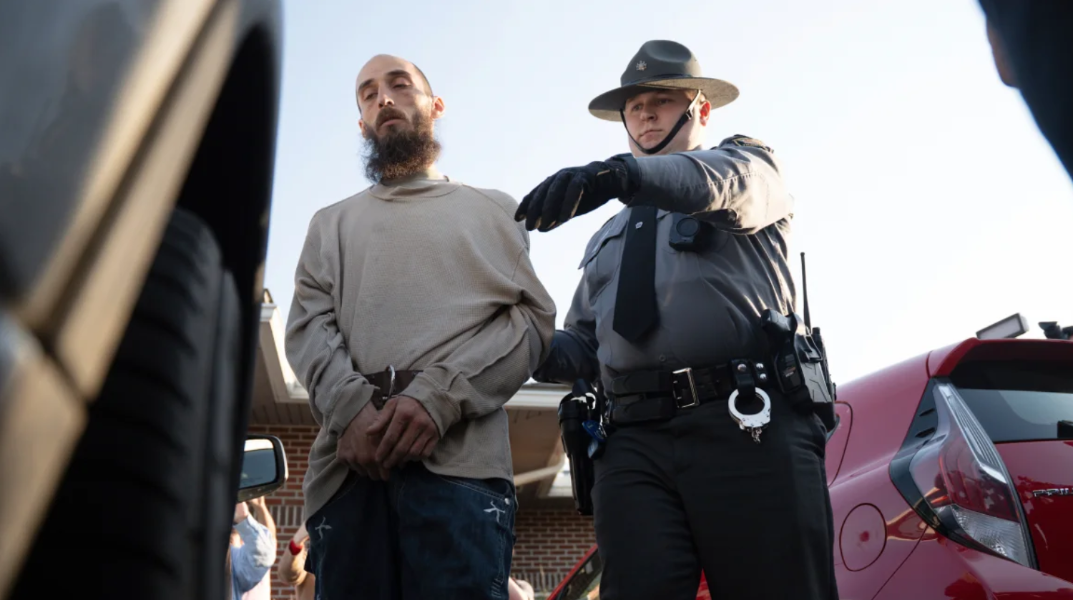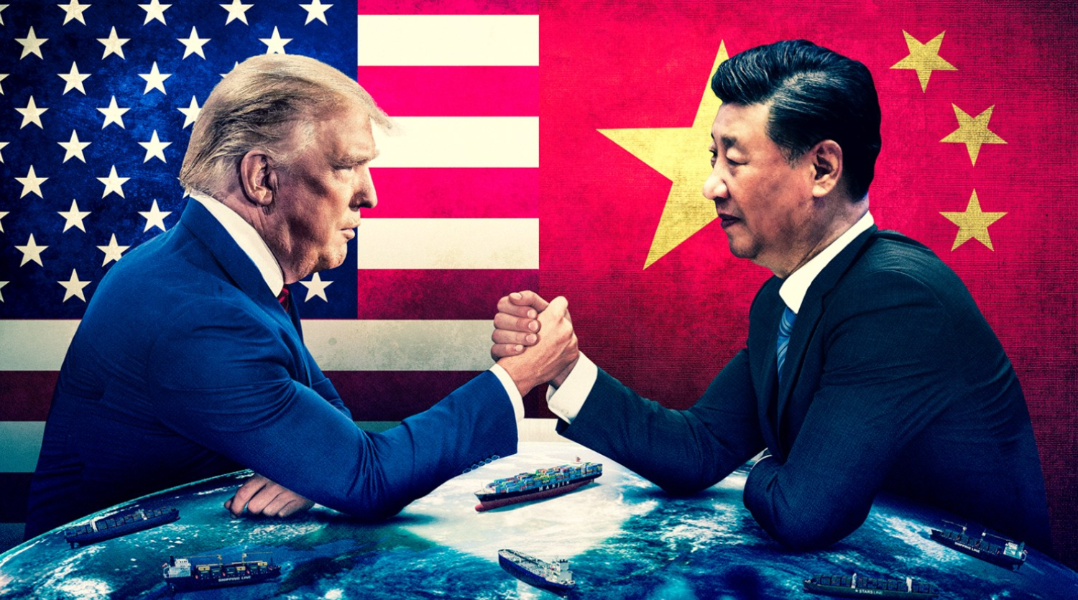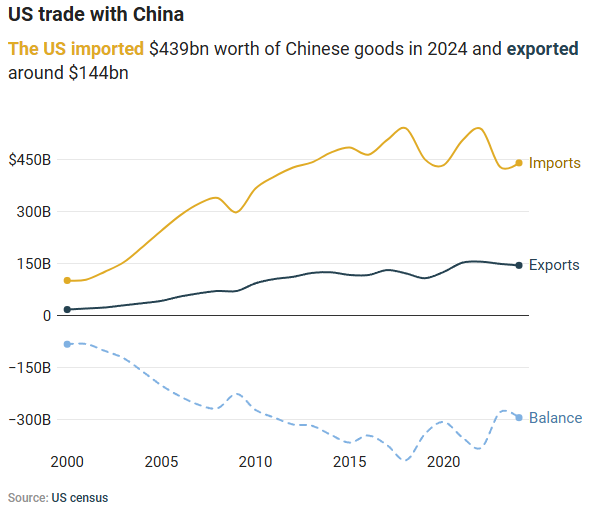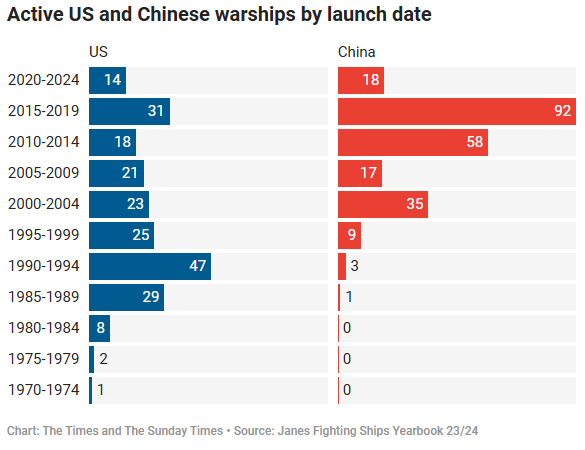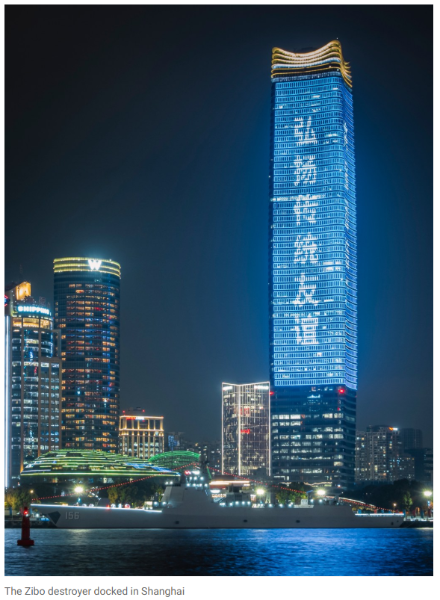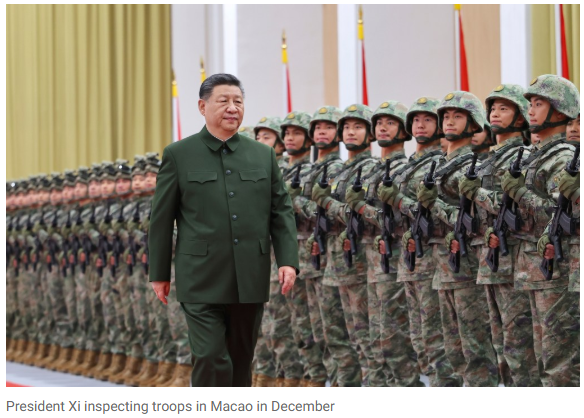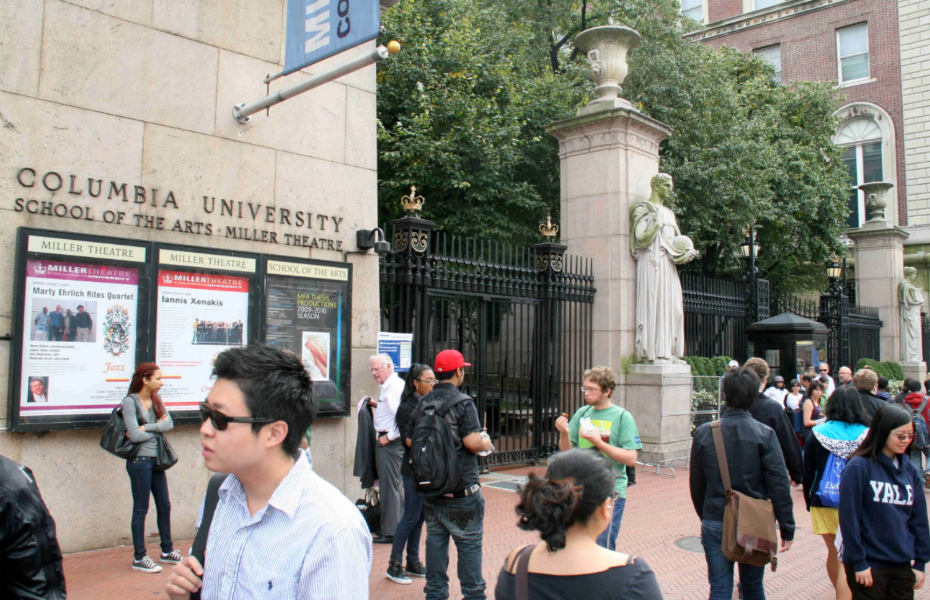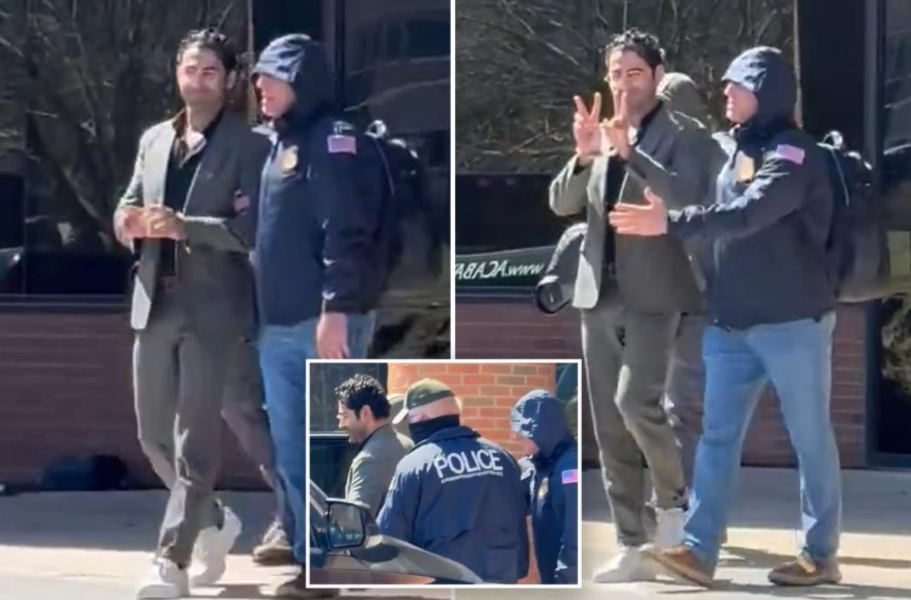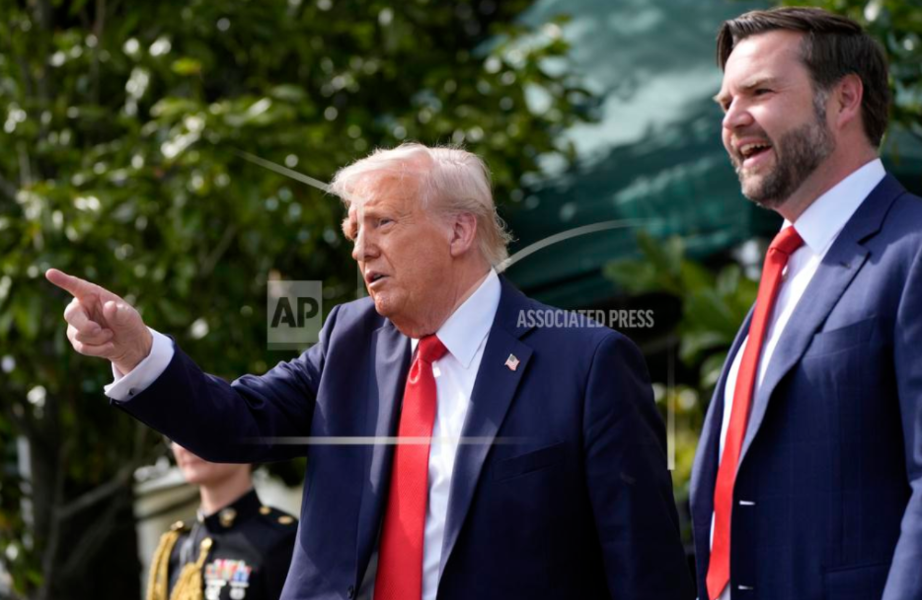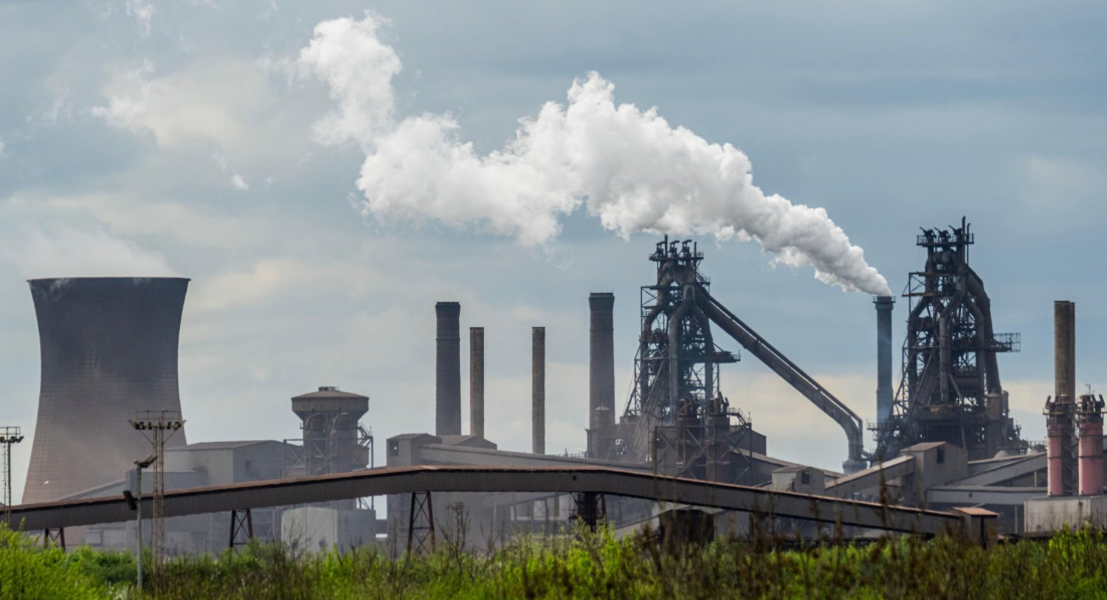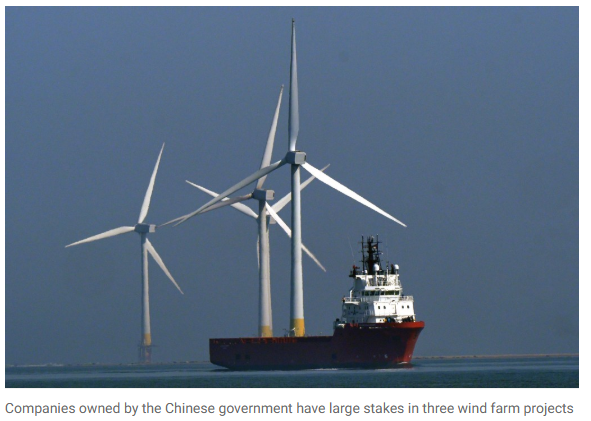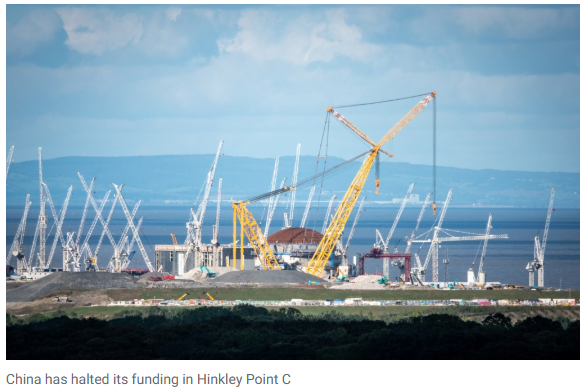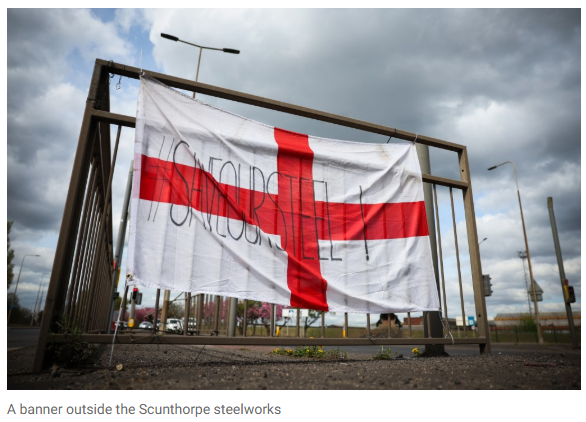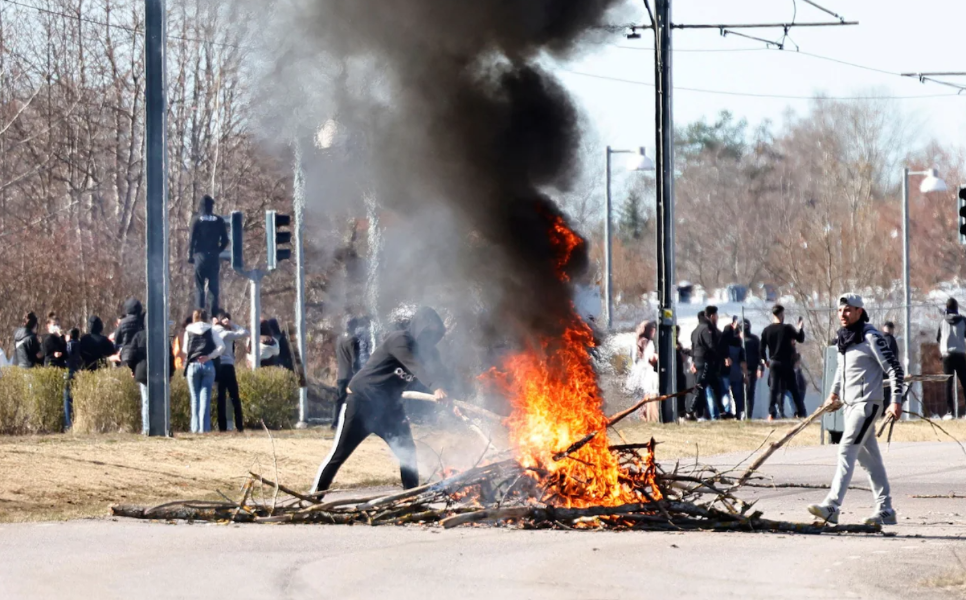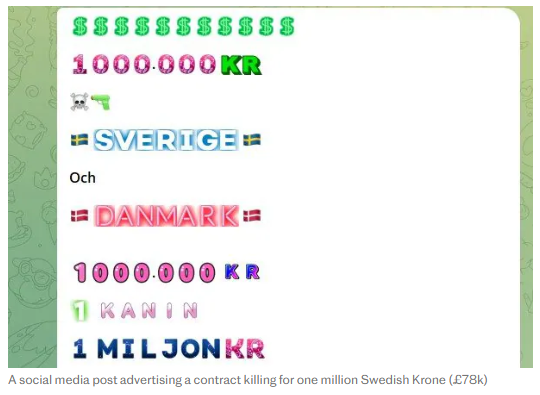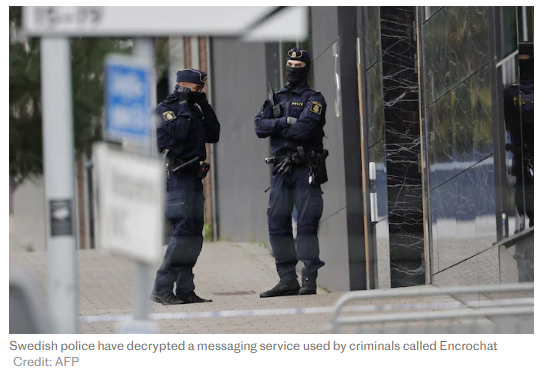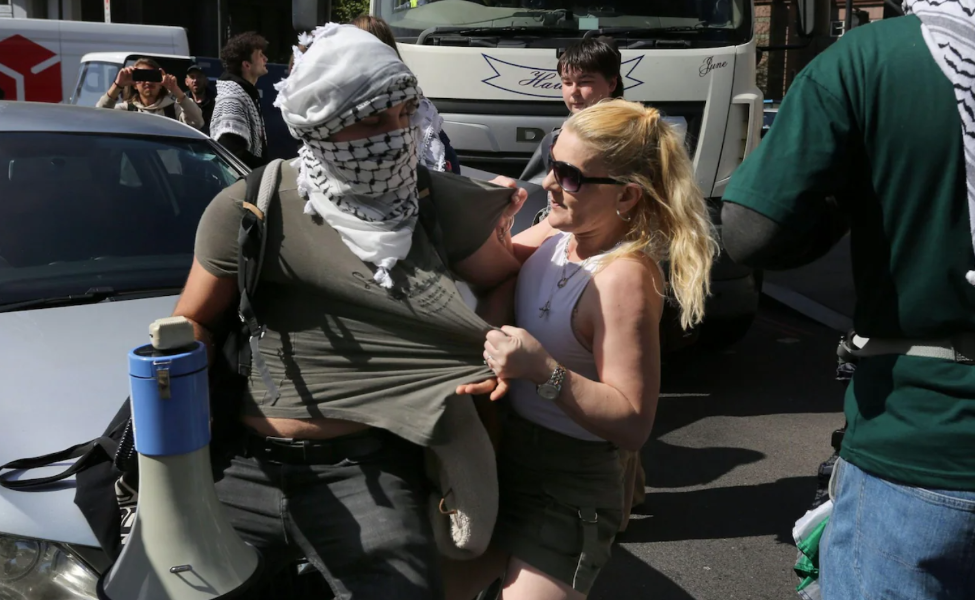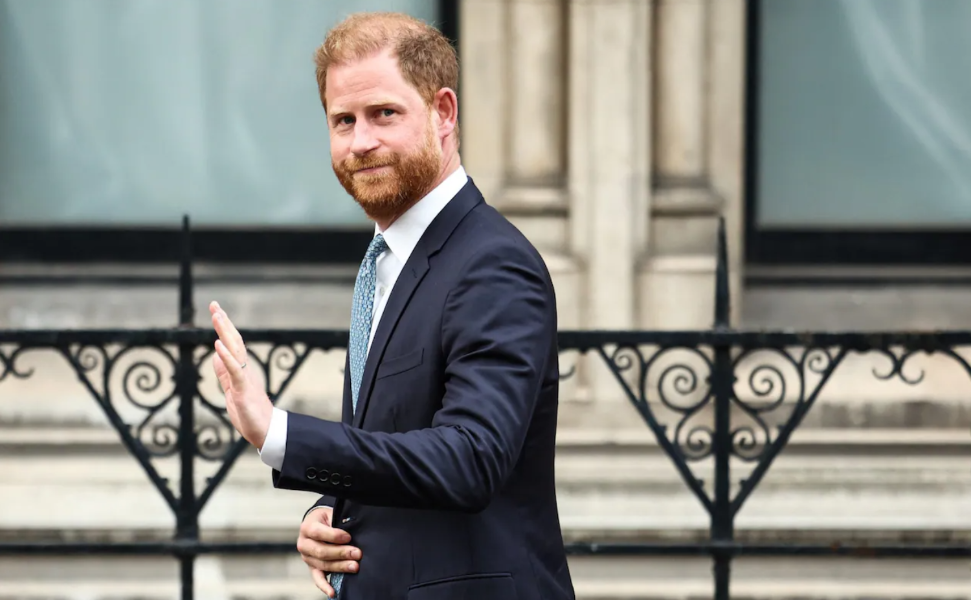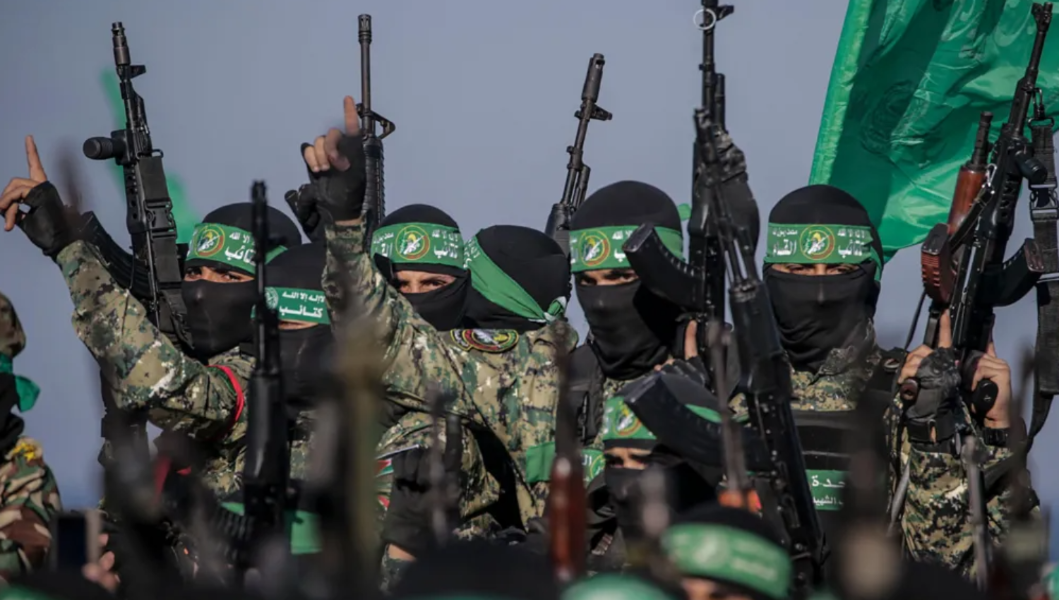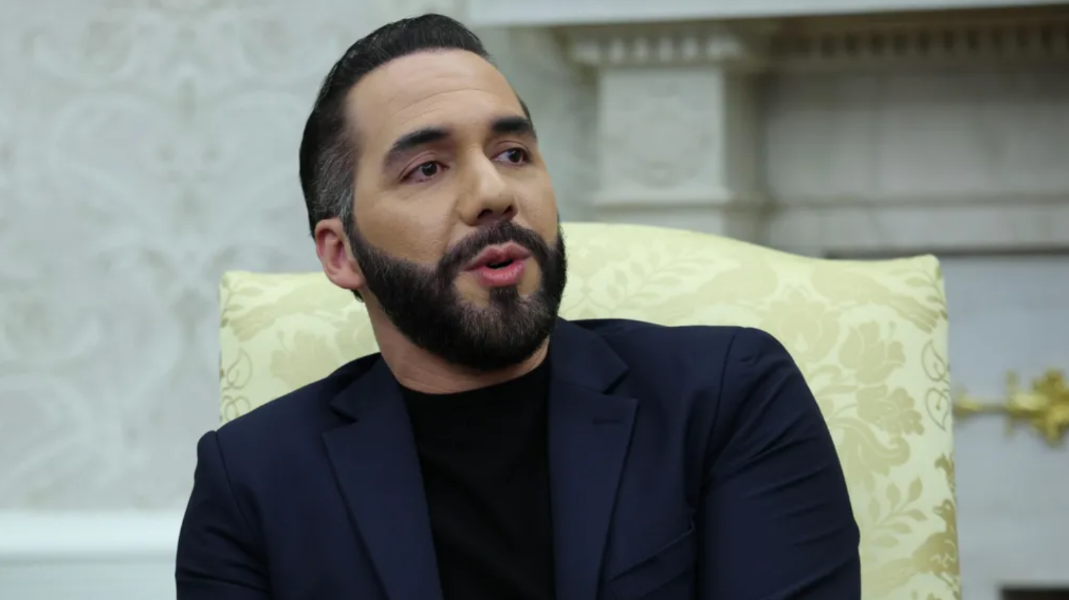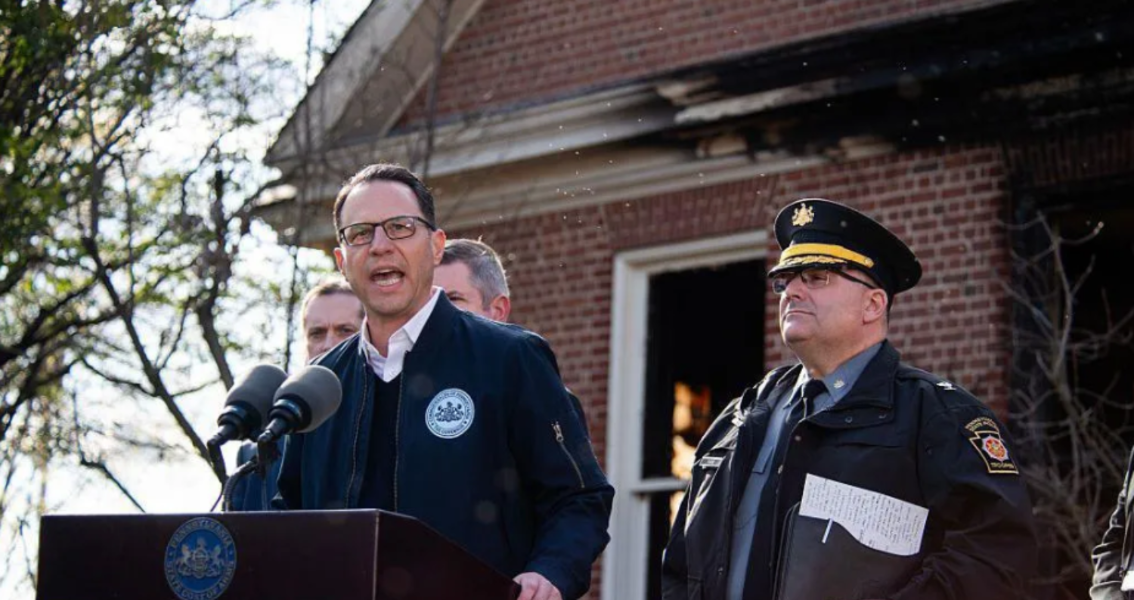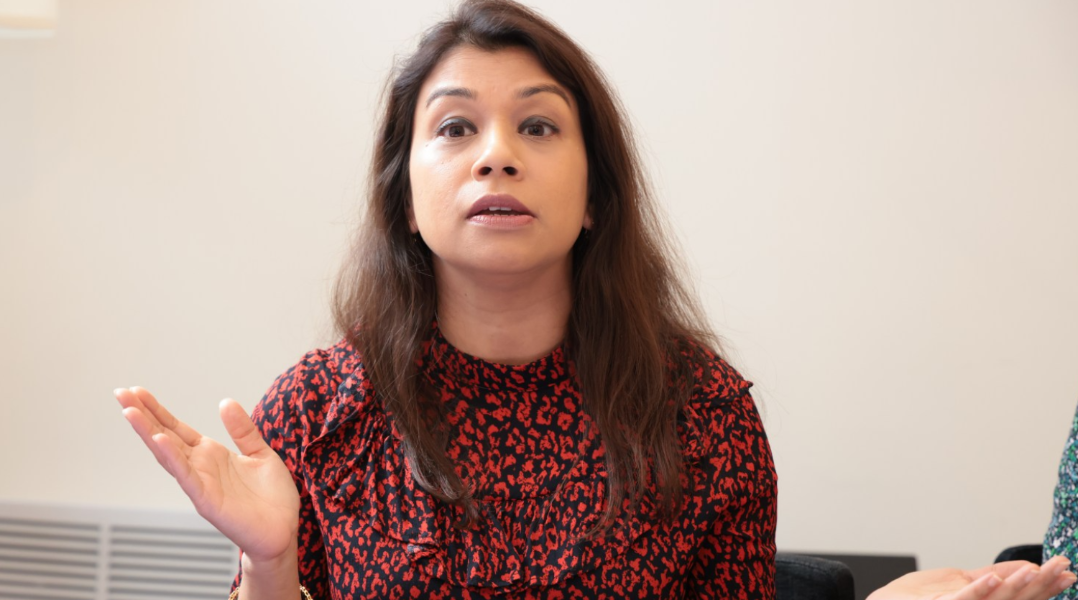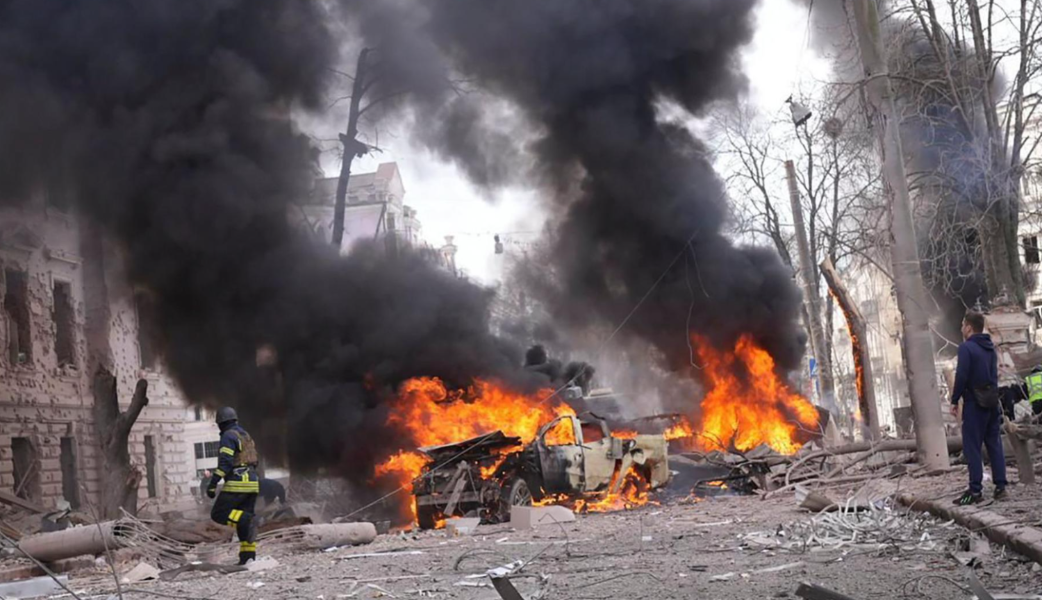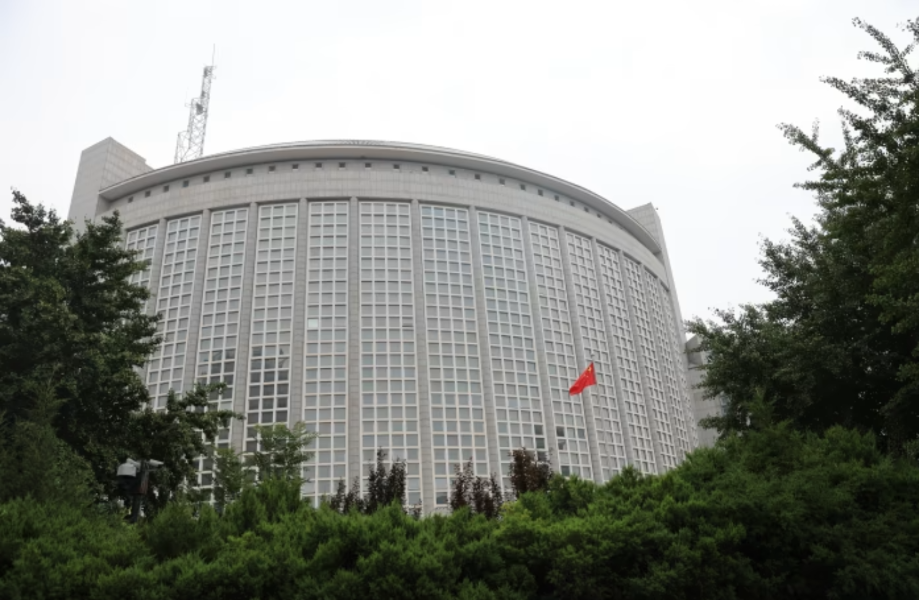-
Posts
9,973 -
Joined
-
Last visited
Content Type
Events
Forums
Downloads
Quizzes
Gallery
Blogs
Everything posted by Social Media
-
A man accused of setting fire to the Pennsylvania governor’s official residence has reportedly said he was driven by political and personal opposition to the governor’s stance on the conflict in Gaza. Cody Balmer, the suspect in the case, allegedly told 911 dispatchers that he targeted Governor Josh Shapiro because of his perceived role in the suffering of Palestinians. According to a report from PennLive, which obtained the search warrant connected to the case, Balmer called 911 in the early hours of Sunday morning following the fire. During the call, he stated that Governor Shapiro "needs to know he will not take part in his plans for what he wants to do to the Palestinian people." The statements suggest that Balmer viewed the attack as a form of political retaliation, tied closely to international issues and Shapiro's position on them. CNN has not independently verified the contents of the search warrant, but a spokesperson for the Pennsylvania Courts confirmed the existence of the warrant in an email on Tuesday evening. “It was not released by my office or court administration,” the spokesperson clarified. “Once we have anything that is docketed, we will send them out immediately.” CNN has reached out to the Dauphin County District Attorney’s office and the Pennsylvania State Police for further comment. The report from PennLive also notes that during the 911 call, Balmer expressed personal anguish, saying Shapiro needed to “stop having my friends killed,” and accusing the governor of being responsible for the suffering of his community. “Our people have been put through too much by that monster,” he reportedly said. The warrant adds that Balmer’s tone and rhythm during the call suggested he may have been “possibly reading from a script.” While authorities are still investigating Balmer’s motives, Dauphin County District Attorney Fran Chardo stated that law enforcement has not yet determined whether hate or antisemitism played a definitive role in the alleged arson. “I can’t speak to it directly because it’s not of record,” Chardo said during an interview with CNN’s Jim Sciutto on Monday. However, he added, “We’re looking at the possibility that it was geared towards the governor’s religion and his views on Israel.” The attack occurred just hours after Governor Shapiro had gathered with his family and members of the Jewish community to observe Passover. Speaking at a news conference the following day, Shapiro addressed the incident with a firm message of resilience and faith. “If he was trying to terrorize our family, our friends, the Jewish community, who joined us for a Passover Seder in that room last night, hear me on this: we celebrated our faith last night, proudly and in a few hours, we will celebrate our second Seder of Passover,” the governor declared. The investigation is ongoing, and authorities have yet to release further details about the potential charges Balmer may face or whether any additional suspects are involved. Based on a report by CNN 2025-04-16 Related Article Arson Attack at Pennsylvania Governor’s Home, Suspect in Custody Possible Terrorism Charges
-

Hacker Targets Phuket Airport Sign with Political Message on Israel
Social Media replied to snoop1130's topic in Phuket News
An inflammatory personal attack with unsubstaniated claims has been removed @Flyguy330 -
Title: The Struggle for Supremacy: Can Trump Halt China’s Global Ascent? As tensions escalate between the United States and China, it has become increasingly clear that the Trump administration is facing an uphill battle to prevent Beijing from eclipsing America as the dominant global power. From economics to military strength and diplomatic influence, China is mounting a formidable challenge on every front. The past week has only underscored the scale and urgency of this confrontation, leaving many to wonder whether Trump's aggressive approach can truly reverse the tide. President Trump’s administration has zeroed in on America’s trade deficit with China, which topped $295 billion last year, as a symbol of declining U.S. dominance. However, efforts to address this imbalance have exposed the complexity of the broader geopolitical struggle. There was once a belief that China's internal economic pressures would restrain its hand in a full-blown trade war. That assumption has been decisively shattered. On Wednesday, the White House paused most of its tariffs for 90 days but simultaneously hiked duties on Chinese imports to 145 percent. China responded with its own 125 percent tariff on U.S. goods. The Chinese commerce ministry declared, “The blackmailing nature of the US… China will never accept this… China will fight to the end.” Despite the massive scale of exports to the U.S., those sales account for just 2 percent of China's GDP, giving Beijing room to maneuver. The economic front is only one battlefield. The U.S. debt market faced its worst day in four decades as investors from Japan and Europe offloaded American bonds. Though China wasn’t behind the sell-off, the event was a stark reminder of its leverage. With over $750 billion in U.S. Treasury bonds, China holds 2.6 percent of America’s staggering $36 trillion federal debt. George Saravelos of Deutsche Bank warned, “The next phase risks being an outright financial war involving Chinese ownership of US assets both on the official and private sector front… the loser will be the global economy.” Military developments are equally unsettling. Chinese naval exercises near Taiwan have become increasingly routine, suggesting the capacity for a swift blockade. Rear Admiral Mike Studeman, former head of the Pentagon’s office of naval intelligence, remarked, “The Chinese very well could prevail in any number of different contingencies” against the U.S. Navy. He noted, “They’re every bit a peer,” and criticized America's failure to recognize China’s systematic transformation of potential into power. Shipbuilding illustrates the disparity. In 2024, Chinese shipyards launched over 250 vessels, dwarfing the five produced in the U.S. That single year’s output from China surpassed the total American shipbuilding since 1945. China now fields more major warships and submarines than the U.S., having added 29 new vessels over the past decade. “May be the next step for China,” said Nick Childs of the International Institute for Strategic Studies, referring to a potential buildup of Chinese submarines. He added that collaboration with Russia could help China develop quieter, more advanced subs. “That’s a big concern.” Despite U.S. efforts, such as new partnerships with South Korean shipbuilders and executive orders aimed at revitalizing domestic production, real gains remain distant. Simultaneously, tariffs have strained ties with key Pacific allies like Japan and South Korea, leaving Washington vulnerable to diplomatic losses. “I think we’re blowing whatever advantages we had,” said Studeman, stressing the need for strategic unity. U.S. Treasury Secretary Scott Bessent warned European leaders that Chinese goods taxed out of American markets would soon target Europe: “Guess where they’re going to land? On European shores.” Yet, the EU’s response has been cautious. Though it recently raised tariffs on Chinese electric vehicles, it has resisted broader Trump-style measures and is now preparing for talks in Beijing to soften the blow of U.S. actions. While Trump officials insist their plan is on course, the situation remains fraught. New trade barriers threaten global commerce, and America's long-standing supremacy is under siege. The reality is that despite years of efforts by both Trump and Biden administrations, America's grip is loosening as China's momentum accelerates. Even if Beijing chooses to compromise on trade, the broader shift in power seems inevitable. The cost of stalling China’s rise may be global economic disruption — and the results, if they come, will take years to materialize. Based on a report by The Times 2025-04-16
-
Unmasking the Hydra: Why the White House Must Double Down on DEI in Education As the White House intensifies its campaign against Diversity, Equity, and Inclusion (DEI) in American institutions, it must recognize the evolving nature of the challenge. DEI, a movement that once wore its identity openly, is now adapting and hiding behind euphemisms and bureaucratic reshuffling. If this ideological agenda is to be dismantled, the effort must not only continue—it must become even more forceful. The case of Caltech illustrates just how deeply embedded DEI has become and how adept its proponents are at cloaking their intentions. Lindsey Malcom-Piqueux, the university’s former Chief Diversity Officer, has been given a new title and a convenient promotion. But critics argue that this move is little more than camouflage—designed to preserve the same divisive DEI framework under a different label. “That’s what DEI is, remember. A system of race- and gender-based patronage (or, if you happen to be male, white, Asian or Jewish, discrimination) contrary to everything good and just and right in America,” one commentator warned, characterizing the practice as fundamentally unjust and antithetical to the principles of meritocracy. And Caltech is hardly alone. At Columbia University, former interim president Katrina Armstrong was caught on tape admitting that the school’s supposed compliance with Trump-era DEI restrictions was a charade. “Everything was going to be business as usual,” she said. The revelation came about because, astonishingly, Armstrong and her colleagues failed to disable Zoom’s recording function during their internal discussions. “If that’s not a testament to why DEI hiring policies in the academy are bad, we don’t know what is,” critics quipped, highlighting what they see as incompetence enabled by ideologically driven hiring practices. The trend extends beyond academia. Major corporations like Edward Jones and Costco are allegedly engaging in similar efforts to conceal race- and gender-based programs. Costco, in particular, is facing scrutiny from multiple state attorneys general, with investigations underway into whether its practices may violate anti-discrimination laws. Yet while some organizations are masking their intentions, others are refusing to comply altogether. New York’s State Education Department, for instance, announced it would not enforce the Trump administration’s order on DEI policies in public schools. This blatant defiance underscores the need for a stronger federal response. To critics of DEI, the movement is not just misguided policy—it is a resilient and dangerous ideology. “Otherwise the hydra will just regrow its heads,” they warn. This metaphor reflects the belief that unless every manifestation of DEI is exposed and dismantled, it will persist in new forms, spreading further into education, government, and private enterprise. Supporters of the White House’s position argue that this is a moral imperative as much as a legal one. They believe the only way to restore fairness and protect the values of equality under the law is to confront DEI wherever it appears—especially when it hides behind clever titles and vague language. Without such vigilance, they claim, the system will continue to operate in shadow, undermining institutions and eroding public trust. For those who see DEI as a threat to meritocracy and individual rights, this is no time for compromise. It is a time to strike harder, more decisively, and with full awareness that the enemy is no longer in plain sight. Based on a report by NYP 2025-04-16
- 58 replies
-
- 10
-

-

-

-

-
Palestinian Columbia Protester Detained by ICE During Citizenship Appointment Palestinian student and activist Mohsen Mahdawi, who had been living in the United States for a decade, was taken into custody by U.S. Immigration and Customs Enforcement (ICE) agents during what was supposed to be the final step in his journey toward American citizenship. The incident occurred Monday at a U.S. Citizenship and Immigration Services (USCIS) office in Burlington, Vermont, and has since sparked outrage among civil rights advocates and lawmakers. According to The Intercept, Mahdawi, who originally came from the West Bank and had obtained a green card during his time in the U.S., was actively involved in pro-Palestinian demonstrations at Columbia University. He had served as a leader of Columbia’s Palestinian student union and was a visible presence at anti-Israel protests on the university’s Morningside Heights campus up until the spring. The arrest, captured on video and circulated on social media, shows Mahdawi handcuffed and being escorted by federal agents into an unmarked vehicle. Speaking to The Intercept, Mahdawi described his detention as a life-threatening consequence. “It’s kind of a death sentence,” he said. “Because my people are being killed unjustly in an indiscriminate way.” His lawyer, Luna Droubi, condemned the arrest as baseless and discriminatory. “He was unlawfully detained today for no reason other than his Palestinian identity,” Droubi said. “He came to this country hoping to be free to speak out about the atrocities he has witnessed, only to be punished for such speech.” Neither the Department of Homeland Security (DHS) nor the State Department responded to media requests for comment. Columbia University, citing Family Educational Rights and Privacy Act (FERPA) obligations, declined to speak on the matter. Mahdawi had reportedly gone into hiding prior to his arrest, fearing he might become a target of the Trump administration’s broader deportation efforts. During that time, he reached out to Columbia University requesting help with shelter, but, according to him, received no response. While in hiding, he received a notice that his citizenship interview had been rescheduled from a later date to an earlier one. Concerned that this might be a trap, Mahdawi still chose to attend — and was arrested upon arrival. Mahdawi also claimed that the FBI had visited him late last year but had taken no formal action at the time. Reflecting on his circumstances, he told The Intercept, “This is the outcome. I will be either living or imprisoned or killed by the apartheid system.” In a December 2023 appearance on 60 Minutes, Mahdawi criticized then-Columbia President Minouche Shafik’s response to the Hamas attack on Israel, arguing it failed to acknowledge Palestinian suffering. “That’s why they’re crushing universities now, it’s not only about Palestine,” he said. Despite everything, Mahdawi expressed belief in the American people: “People ask me why I would want to become a citizen of a country committing genocide. I have faith in the people living in this country. The government is not the people.” His arrest drew sharp criticism from lawmakers, including Vermont’s Independent Senator Bernie Sanders, who issued a joint statement with Senator Peter Welch and Representative Becca Balint. “Mohsen Mahdawi of White River Junction, Vermont was illegally detained by ICE during what was supposed to be the final step in his citizenship process,” Sanders wrote on X. “Mr. Mahdawi, a legal resident of the US, must be afforded due process under the law and immediately released from detention.” Based on a report by NYP 2025-04-16 Related Topic: Democrats Face Backlash for Supporting Arrested Palestinian Activist Mahmoud Khalil
-
JD Vance Optimistic About Prospects for UK-US Trade Deal U.S. Vice President JD Vance has expressed confidence that the United States and the United Kingdom are on track to finalize a significant trade agreement, providing a much-needed boost for British officials eager to strike a deal. In a recent interview with UnHerd, Vance emphasized the strong relationship between the two nations and suggested there is a “good chance” of reaching a “great” agreement that serves both countries' interests. “We’re certainly working very hard with Keir Starmer’s government on a trade deal,” Vance said. “The president really loves the United Kingdom. He loved the queen. He admires and loves the king. It is a very important relationship.” He went on to highlight President Donald Trump’s longstanding personal and business ties to Britain, adding, “He’s a businessman and has a number of important business relationships in [Britain]. But I think it’s much deeper than that. There’s a real cultural affinity. And of course, fundamentally America is an Anglo country.” Vance's remarks come amid renewed UK efforts to secure economic relief from tariffs imposed by the Trump administration. British officials are eager to lift a 25 percent duty on metals and automobiles, along with a 10 percent baseline tariff on all goods imported to the U.S. “With the United Kingdom, we have a much more reciprocal relationship than we have with, say, Germany,” Vance noted. “While we love the Germans, they are heavily dependent on exporting to the United States but are pretty tough on a lot of American businesses that would like to export into Germany.” U.S. Treasury Secretary Scott Bessent has also weighed in, confirming that the U.K. and Australia are among the nations being prioritized for trade talks. While he acknowledged that Australia's internal politics make it slightly easier to navigate, he made clear that serious discussions are underway with multiple partners. Speaking in Buenos Aires, Bessent told Bloomberg that countries need to bring their “A-game” to negotiations. “It may not be the actual trade document, but we will have and be able to move forward from there,” he said, referencing the possibility of reaching “an agreement in principle” that could lead to tariff carve-outs. He also warned that while tariff reductions are a critical step, non-tariff barriers such as regulations and taxes present longer-term challenges. “Lowering tariffs is one thing, but non-tariff trade barriers like regulations and taxes are more insidious. And it's probably going to take a little longer to exorcise those demons,” Bessent said. For top-tier trading partners, he added, “the president's going to be involved.” Back in the UK, Industry Minister Sarah Jones welcomed the optimistic signals from Washington. Speaking to LBC on Tuesday, she said, “We know we’re in a good position. We are having good conversations. There is a deal there to be done, but as to when that will be done I wouldn’t be able to tell you, but it’s positive that the vice president is positive about our negotiations.” As the Trump administration continues its 90-day pause on some tariffs, both sides appear motivated to move forward. While the path to a formal agreement may still involve complex negotiations, recent statements suggest momentum is building toward a transatlantic trade breakthrough. Based on a report by Politico 2025-04-16
-
Beijing's Influence: The Hidden Reach of China in Britain's Core Infrastructure The ongoing efforts to save the furnaces at British Steel’s Scunthorpe site have triggered renewed concerns in Westminster about China’s growing influence across the UK’s critical infrastructure. The involvement of the Chinese-owned Jingye Group in Scunthorpe is now seen as a stark reminder of how deeply Beijing’s interests are embedded in vital sectors, prompting fresh calls for the government to reduce its exposure to China. While not every Chinese company aligns with the policies of President Xi Jinping’s government, all private firms in China are legally obliged to cooperate with the state when required. As one observer put it, “Not all companies in China will support President Xi’s regime, but all private companies in the country have a legal duty to follow the state’s instructions when required.” This reality adds a layer of complexity to the UK's economic ties with Chinese firms. A 2023 investigation by The Sunday Times revealed that more than 100 British companies have the Chinese state as a shareholder. Although no wrongdoing has been alleged, the figures are staggering. The China List compiled by the paper last year found that £45 billion worth of UK assets were held by the Chinese state, while total holdings by Chinese and Hong Kong investors reached £152 billion. One of the most sensitive areas of Chinese involvement is in nuclear energy. The China General Nuclear Corporation (CGN) was once a key investor in Hinkley Point C, but it pulled back its funding in 2023. The UK government subsequently paid CGN more than £100 million to withdraw its 20 percent stake in the Sizewell C project in Suffolk. CGN remains a lead developer in plans for the Bradwell B plant in Essex, although the project has seen little progress. Chinese state-owned entities also have a significant presence in UK utilities. The China Investment Company (CIC) holds a 10.5 percent stake in the National Grid’s gas distribution network and an 8.7 percent share in Thames Water. CIC also owns part of Cadent Gas and has a 49 percent stake in Neptune, the operator of the Cygnus gas field in the North Sea. In addition, CK Hutchinson, considered close to the Chinese state by the China Strategic Risks Institute, owns parts of UK Power Networks, Northumbrian Water, Wales & West Utilities, and other key infrastructure providers. CIC also controls roughly 10 percent of Heathrow Airport. In higher education, The Times previously reported that 42 UK universities had links with Chinese institutions identified as high risk by the Australian Strategic Policy Institute. These included 22 universities engaged with entities possessing deep connections to the Chinese military and state apparatus. While not all collaborations pose a danger, the findings have unsettled security experts. Britain’s push for greener energy has also left it reliant on Chinese technology. About 80 percent of global solar panel manufacturing is dominated by China, including the critical raw materials. The UK lacks substantial domestic production and spends hundreds of millions annually on imports. Intelligence services, including MI5, have reportedly been assessing the risks posed by widespread use of Chinese-manufactured solar panels and industrial batteries. China’s presence is also felt in wind energy. Analysis by The Times revealed that Chinese companies have funded or supplied components for at least 14 of the UK’s 50 offshore wind farms. State-owned firms hold major stakes in three projects that together generate power for up to two million homes. A recent debate in Parliament highlighted concern over Chinese company Mingyang potentially supplying turbines for Scotland’s Green Volt project. Even telecommunications and consumer tech are under scrutiny. Although Huawei was removed from the UK’s 5G networks in 2020, a merger between Vodafone and Three has sparked renewed fears. CK Hutchinson’s involvement raised red flags with the China Strategic Risks Institute, which warned the deal would “add to a growing list of major stakes held by PRC firms in the UK’s Critical National Infrastructure.” Finally, consumer goods with embedded cellular technology—such as smart meters and electric vehicles—are emerging as the next battleground. The Coalition on Secure Technology warned that three Chinese firms dominate more than half the global market for these components, raising fears of potential data manipulation or disruption. As the government grapples with safeguarding the Scunthorpe steelworks, it is becoming increasingly clear that China’s influence runs far deeper than one industrial site. Based on a report by The Times 2025-04-16
-
How Sweden’s Multicultural Dream Turned Into a Nightmare of Gangs, Violence, and Child Soldiers Once admired across Europe for its peaceful society and progressive ideals, Sweden now finds itself grappling with a grim reality: gangland killings, hired assassins, and the use of children as “soldiers” in an increasingly brutal criminal underworld. To illustrate the severity of the crisis, investigative journalist Diamant Salihu needs only to share a few disturbing phone messages. These aren’t ordinary spam texts. They’re what have become known as “murder ads”—messages festooned with skulls and pistol emojis offering cash rewards to anyone willing to carry out contract killings. “All types of jobs are available,” one reads, luring potential killers with the promise of up to one million Swedish krona (about £78,000). Another adds chillingly: “Age doesn’t matter.” That detail is key. Sweden’s child assassins are becoming a horrifying norm. Under Swedish law, children under 15 are too young to be prosecuted, which has led gangs to recruit minors with alarming frequency. “We have so many child soldiers that nobody can count anymore,” says Salihu, an investigative journalist at SVT, Sweden’s public broadcaster. “There are kids as young as 13 being arrested.” It is no exaggeration to say that barely a week goes by in Sweden without another teenager arrested for attempted murder or a hit job gone wrong. For Salihu, a former tabloid reporter with the calm demeanour of a detective in a Nordic noir novel, the story has become a personal crusade. But unlike fiction, the violence in Sweden has no neat resolution, no clear villain. It’s a mystery rooted in decades of political choices, social challenges, and shifting demographics. Over the past ten years, Salihu has chronicled Sweden’s descent into gang warfare in two best-selling books. His first, Until Everyone Dies, examined the bloody feud between two Somali gangs that left nine young men dead. His latest, When Nobody’s Listening, delves into the encrypted world of organised crime, following the revelations unlocked when European authorities cracked Encrochat, the preferred mobile network of criminals across the continent. The book, newly released in English, expands on Salihu’s exploration of a nation in crisis. Himself a migrant of Kosovan heritage, Salihu knows both the promise and pitfalls of Sweden’s long-standing commitment to multiculturalism. He spent part of his early career in London, reporting for Expressen during the aftermath of the 2011 riots. When similar unrest broke out in Swedish cities just two years later, he began to see troubling patterns. “In the Swedish areas that have social problems, I didn’t see the same bad standard of housing and class differences that I saw in the UK,” he says. “So why, when we in Sweden have a generally better standard of living, do we have this escalation of violence?” It’s a question many Swedes are now asking. In 2022 alone, Sweden recorded 62 fatal shootings—twice the number seen in England and Wales, which has six times the population. Only Albania had a higher rate of gun deaths per capita in Europe that year. The perpetrators are no longer just motorcycle gangs or fringe thugs. Today’s violence is largely driven by ethnically based organised crime groups, including the Foxtrot network—an outfit run by Kurdish criminals that looms large in Salihu’s latest reporting. Foxtrot, though heavily involved in drug trafficking, operates more like a chaotic patchwork of freelancers. It was this gang that pioneered Sweden’s online murder ad system, equipping teenagers with guns and grenades, often on loan, in exchange for deadly favours. With even small towns now witnessing shootings and bombings, law enforcement struggles to keep up. Meanwhile, gang leaders are idolised on social media, their exploits glamorised by rappers and so-called “gangfluencers”—a word that entered the Swedish lexicon in 2021. As Prime Minister Ulf Kristersson grimly put it: “Sweden has never seen anything like it before.” Even native-born Swedish youths are now taking part. “We also now see Swedish kids involved—some from broken backgrounds, but some whose parents are successful,” Salihu says. “All they’ve maybe done before is steal something or play truant. Now they’re getting involved in murder.” One especially chilling example emerged late last year when a 14-year-old was filmed committing a gang hit. Armed with a Kalashnikov, the child was captured on camera firing at the door of a residential building, reportedly to provide proof of the killing. So how did it come to this? According to Salihu, part of the answer lies in social disconnection. Though Sweden has long invested in integration programmes, trying to prevent “parallel societies,” those very divisions have nonetheless taken root. Born on a farm in Kosovo, Salihu’s early life was modest. “We had a horse and cart, like in the Borat movies,” he recalls. His family fled the country in 1998 ahead of the war with Serbia, resettling in a Swedish town. His mother, he remembers, collapsed in grief upon learning her brother had been killed in the war. At school, he encountered a Sweden full of promise. About 20 per cent of his classmates were fellow migrants, but many others came from well-off Swedish families. “That makes it harder for them to learn Swedish properly, and they won’t see what I saw as a child. Society has become much more segregated,” he says. “Swedes welcome people from every corner of the world, but don’t actually want to live with them as neighbours.” But he doesn’t place all the blame on racism. In his book, Salihu highlights communities where single mothers are left to raise large families alone. Still, many of the gang members he interviews “actively choose their lifestyle,” he says. “They’ve had all the opportunities, with siblings who’ve graduated and got good jobs, yet still they’ve chosen the bad path.” It’s a path paved with violence. Murderers are often instructed via smartphone livestreams, sometimes told to record their actions. In December, one assassin even used a GoPro to film himself killing rapper Ninos Khouri in a Stockholm car park. Salihu’s work has made him a target. When Mustapha al-Jubouri, a former Foxtrot member, posted a video from Iraq declaring he had faked his own death—brandishing a gold Kalashnikov for effect—his followers launched a campaign against Salihu via Instagram. “It was being watched by 20,000 people,” he says. “How could Instagram not do something about that, knowing what kind of people are involved, inciting murder and threatening journalists?” The violence has also spilled across borders. In the UK, Swedish gang connections have surfaced in high-profile killings. In 2022, Tunisian kickboxer Anis Hemissi was convicted of murdering Swedish-Albanian crime boss Flamur Beqiri in London. Last year, Swedish police began hunting a gangster accused of killing two British businessmen, Juan Cifuentes and Farooq Abdulrazak, in Malmö. Some gang leaders operate from abroad, shielded by foreign passports. Al-Jubouri remains in Iraq, while Foxtrot boss Rawa “The Fox” Majid lives in Turkey, having obtained citizenship there to avoid extradition. He is believed to have fled to Iran last year after escalating conflicts. Majid’s influence is even attracting geopolitical scrutiny. A year ago, Swedish officials accused Iran of enlisting local gang members for attacks on Israeli interests in Europe, including a grenade found near Israel’s embassy in Stockholm. In response, the U.S. sanctioned Foxtrot, citing Majid’s direct cooperation with Tehran. The Swedish government is scrambling to respond. Juvenile sentencing has been toughened, and thanks to the Encrochat hack, about 400 gang members have been jailed. Politicians now want tighter regulation of social media to curb the spread of murder ads—something Salihu believes is a growing danger far beyond Sweden. “You too may end up with British child soldiers, just as we are facing this crisis in Sweden,” he warns. Though UK gun laws are stricter, knife crime is rampant. In the year leading up to March 2024, 57 people under 25 were stabbed to death, including 17 children under 16. Despite a recent dip in Sweden’s gun homicides—from 62 in 2022 to 45 last year—Salihu sees no cause for relief. The infrastructure of violence remains, he argues, and the stakes are getting higher. “These guys are predators,” he says. “You have to stand up to them, not back off.” If Swedish society fails to confront the problem, Salihu warns, the targets of gang violence may one day include far more than just rivals. “I fear that our democratic institutions will come under pressure, be it prosecutors, or journalists – I myself would feel much more afraid.” Based on a report by The Telegraph 2025-04-16
-
Tensions Flare in London as Pro-Palestinian Protesters Pelted with Eggs During Road Blockade Chaos unfolded in central London as pro-Palestinian protesters affiliated with the activist group Youth Demand were pelted with eggs while blocking major roads in the city. Armed with orange flares and bold banners reading “Free Palestine” and “Stop Arming Israel,” demonstrators disrupted traffic at key locations including Moorgate, Farringdon Road, and Fenchurch Street. The protest, which was described by witnesses as highly disruptive, drew strong reactions from the public — including what Youth Demand called a “shower of eggs” hurled at activists on Farringdon Road. The group reported that a truck also attempted to drive through the crowd, highlighting the intensity of confrontations between the protesters and the public. Despite the disruption caused by the demonstration, which blocked roads for around 20 minutes at each location, Youth Demand stated that no arrests were made. The Metropolitan Police have yet to issue an official statement in response to the incident. Youth Demand has quickly gained notoriety in recent weeks and is being referred to as “Just Stop Oil 2.0,” a nod to its close alignment with the soon-to-be-defunct environmental group known for high-profile protests. The new organisation is composed of various pro-Palestinian and environmentalist factions that have come together to continue the momentum of civil disobedience tactics aimed at drawing attention to both international and environmental crises. This protest followed a separate, provocative action earlier in the week targeting Foreign Secretary David Lammy. On Tuesday, two female Youth Demand activists staged a demonstration outside Lammy’s home in north London, laying child-sized body bags on his doorstep and hanging a sign reading “Lammy Stop Arming Genocide” over his hedge. The message was clear: the group accuses the UK government of being complicit in what it terms genocide, citing the ongoing conflict in Gaza. Youth Demand’s mission appears to extend beyond the Israeli-Palestinian conflict. The group also demands reparations from what it calls “the super rich and fossil fuel elite,” whom they hold responsible for inflicting environmental harm on vulnerable communities through fossil fuel consumption. They frame their activism as a moral obligation in the face of global injustice. Mia Hinds, an 18-year-old activist from Exeter who participated in Friday’s protest, articulated the motivation behind her involvement. “I am taking action with Youth Demand because I cannot sit by and watch two genocides happen on livestream: the genocide of the Palestinians, and the global genocide of the climate crisis,” she said. “As a young person, I feel so much rage about government complicity and I feel a duty to take to the streets.” While Youth Demand’s actions are clearly designed to provoke public and governmental attention, they have also sparked controversy. The UK Government’s current stance is that Israel’s actions in Gaza are at a clear risk of breaching international humanitarian law. However, campaigners like those in Youth Demand argue that mere acknowledgment is not enough and that urgent action is required to end both military support to Israel and environmental policies that perpetuate inequality and destruction. Based on a report by The Telegraph 2025-04-16
-
Prince Harry Claims Police Protection Was Withdrawn to Trap Him in UK: “My Worst Fears Have Been Confirmed” Prince Harry has accused the British establishment of using the removal of his police protection as a tactic to trap him and Meghan Markle in the UK and prevent them from starting a new life abroad. Speaking candidly to The Telegraph following a two-day appeal hearing at the Royal Courts of Justice, the Duke of Sussex revealed that secret evidence presented in court has confirmed his “worst fears.” The Duke claimed the decision to strip him and his family of taxpayer-funded security was “difficult to swallow,” describing it as a calculated move designed to make it impossible for him to live safely outside the royal fold. According to Harry, this action was not just administrative — it was punitive, meant to control and punish the couple for choosing independence over royal protocol. “We were trying to create this happy house,” he said, explaining how he and Meghan hoped that carving out a peaceful life outside the UK would ultimately help mend family ties. Instead, he believes the revocation of security was a deliberate ploy to force them back into a life they had chosen to leave behind. Though much of the hearing took place behind closed doors due to the sensitive nature of national security information, the Duke said what he learned behind those closed doors has left him devastated. “People would be shocked by what’s being held back,” he remarked, suggesting that hidden elements of the case point to deeper issues within the system. Legal Battle Rooted in Broken Trust Harry’s appeal seeks to overturn the Home Office’s decision, arguing that the Royal and VIP Executive Committee (Ravec) — the body that determines security for royals and high-profile individuals — failed to follow its own procedures and gave him “unjustified and inferior treatment.” He emphasized that the threat to his safety did not vanish the moment he stepped back from royal duties. Ravec ultimately determined in February 2020 that since the Sussexes intended to live abroad as private citizens, full-time police protection would no longer be appropriate. Instead, a “bespoke” approach was created, requiring the couple to give 30 days’ notice of any visit to the UK, with protection granted only on a case-by-case basis — a system Harry argues is inadequate and “plainly irrelevant” to security needs. The Duke pointed to individuals like former prime ministers, who continue to receive taxpayer-funded protection, as evidence of inconsistencies in the policy. “Security is not a privilege,” he has insisted, but a necessity due to his royal status, his military service, and the high-profile nature of his and Meghan’s public lives. Rift with the Royal Family The decision to remove Harry’s protection has been a cornerstone of his strained relationship with his family — particularly with his father, King Charles III. Harry maintains that the King has the power to intervene, especially since his private secretary, Sir Clive Alderton, sits on Ravec. Palace insiders, however, firmly deny that the monarch can influence judicial or government decisions of this kind. The roots of Harry’s discontent stretch back years, with growing frustration over his family's handling of Meghan’s integration into royal life and broader issues of institutional control. He believes the committee’s structure is archaic and was fixated more on international threats than on the domestic risks facing his young family — concerns amplified by the fate of his mother, Princess Diana. Harry was “furious” when Ravec’s final decision was handed down, reportedly demanding to know who was willing to “put my family in danger.” For the Duke, the withdrawal of police protection was more than a policy shift — it was a betrayal. A Cause Greater Than Media Battles Although Harry’s battles with the British press have been long and public — including lawsuits over phone hacking — he has described this security case as even more important. “This one always mattered the most,” he told The Telegraph. It touches the very core of his identity: a man born into an institution that defined his life from childhood and continues to shape his future, whether he wants it to or not. Throughout his childhood, Harry was constantly surrounded by police protection officers. “It was simply a part of life,” he said. That protection did not disappear when he left the palace. His public profile, military service, and royal lineage continue to make him and his family targets, he argues — and that’s something the UK government, in his view, has failed to properly acknowledge. Looking Forward: Peace or More Fallout? Though the appeal decision will not force Ravec to rewrite its policies, a favorable ruling might lead to reassessment. For now, Harry appears more committed than ever to his cause, saying he is “driven by exposing injustice” and won’t let this rest — not for himself, and potentially not for others in similar positions. Friends say that should the security matter be resolved in his favor, he would consider the issue closed — “swords down,” as one source put it. But the outcome is not in his hands. Even if he wins, there’s no guarantee that the policy will change. Regardless, the Duke remains determined to return to the UK for charitable work, even if it means operating under limited or inconsistent protection. His recent unannounced visit to war victims in Ukraine, just hours after his appeal hearing, is evidence of his continued commitment to humanitarian causes — even amid his legal battles. In the background, his relationship with his family remains tense. He hasn’t seen or spoken to his father or brother, the Prince of Wales, in months. King Charles’s ongoing battle with cancer has added an emotional weight to the situation, yet the lack of trust remains a barrier to reconciliation. And as for what comes next? While Harry hasn’t ruled out going public with his experience — via interviews, another book, or even a podcast — he’s aware of the further damage that could cause. Still, he insists that if he uncovers injustice, he cannot simply walk away. He’s made it clear: he won’t stop fighting until he feels vindicated. A palace source, reflecting the institution’s reluctance to comment, said simply: “These are matters of security and government policy and, as usual, it would be inappropriate to comment or intervene on either.” Based on a report by The Telegraph 2025-04-16
-
Chinese Factories Grapple with Uncertainty Amid U.S. Tariffs In the industrial heartlands around Guangzhou, China’s southeastern commercial powerhouse, small factories that have long powered the nation’s economic ascent are now struggling to find their footing. These export-oriented manufacturers, known for producing an array of goods quickly and cheaply, have long employed millions of migrant workers and supported entire communities. But with the imposition of tariffs by the United States under the Trump administration, their survival is increasingly uncertain. Factories that once thrived on consistent American orders are now facing unexpected cancellations and steep financial losses. Managers of clothing factories in particular are alarmed by the sudden disappearance of deals they had already begun to fulfill, leaving them with mountains of unsold inventory. “The trade war has a huge impact, because if you can't export, there will be fewer orders for clothing, and there will be nothing to do,” said Ling Meilan, co-owner of a shirt factory nestled within a maze of concrete industrial buildings. Her workers, she said, continue laboring under fluorescent lights, but they’re unsure what the future holds. Ling’s factory primarily serves the domestic Chinese market, but many of her neighboring businesses depend heavily on exports to the United States. Some of those nearby factories have already temporarily shut down, waiting to see whether the tariff situation will improve. Others are rushing to identify new international buyers or turn their focus inward, targeting Chinese customers instead. However, the Chinese domestic market offers little relief. Even before the U.S. began slamming the door on Chinese imports, the country was already grappling with an oversupply of manufacturing capacity. Fierce price competition and deepening consumer frugality—exacerbated by financial losses from the real estate market collapse—have driven prices for goods to unsustainably low levels. "Ruinously low prices" now define the local market, according to many factory managers. Further down the street from Ling’s factory, another manager named Yao shared her concerns. Her factory mainly produces goods for sale on Amazon and has also seen a noticeable drop in orders. “If the U.S. tariffs are too high, we can't do it, and I will definitely switch to other markets,” she said. For the small factories in Guangzhou, the loss of American orders is particularly damaging because U.S. importers often pay half of the cost upfront, with the remainder due upon delivery. When orders are abruptly canceled to avoid tariffs, these partial payments don’t come close to covering the manufacturing costs. Factory owners are then left with fully made products—ranging from clothing to handbags—clogging their shelves, draining resources, and offering no return on investment. Not all sectors are equally vulnerable. Some machinery manufacturers, for instance, may weather the storm more successfully due to China's overwhelming dominance in certain technical niches. These firms have fewer international competitors, which may shield them from the full brunt of the trade war. Still, with uncertainty looming large and buyers growing cautious, even they are wary. As tariffs reshape global trade patterns, these Chinese factories—once a symbol of relentless growth—now face a future marked by stalled orders, financial strain, and a race to adapt before more shutters close. Based on a report by BBC | ET 2025-04-16
-
Hamas Rejects Israeli Ceasefire Offer Over Disarmament Demand Hamas has reportedly turned down Israel’s latest proposal for a six-week ceasefire in Gaza, which included a demand that the militant group surrender its weapons—a condition that has proven to be a firm red line for Hamas leadership. The proposal was delivered to regional mediators late last week, shortly after Israeli Prime Minister Benjamin Netanyahu held talks with President Donald Trump in Washington. In response, a senior Hamas delegation led by Khalil al-Hayya traveled to Cairo for meetings with Egyptian intelligence officials. Al-Hayya, who serves as both deputy chairman of Hamas’s political bureau and the group’s chief negotiator in ceasefire and hostage negotiations, has previously made Hamas’s stance unmistakably clear. He reiterated the group’s refusal to disarm, its a red line for Hamas. Previously Khalil stated the groups ongoing commitment to the destruction of Israel, he expressed pride in the October 7 attacks and vowed to repeat them. According to a Palestinian official, Israel’s ceasefire proposal was viewed as a stalling tactic, designed not to bring an end to hostilities but to secure the release of hostages while continuing the war effort. The official emphasized that Hamas would not accept any proposal that demanded it give up its weapons, calling the requirement unacceptable and unrealistic. Currently, it is believed that 59 hostages remain in Gaza, with 24 confirmed to be alive. On Tuesday, a spokesman for Hamas’s military wing claimed the group had "lost contact" with a unit holding Israeli-American hostage Edan Alexander, allegedly due to a direct strike on their position. Hamas had released a video of the 21-year-old soldier days earlier, in which he appeared to be speaking under duress. In a separate piece of propaganda, Hamas threatened to return hostages in coffins. Accounts from recently released hostages paint a grim picture of their captivity. Many describe being held in harsh underground conditions, often in poor health and with untreated wounds. Hamas has said it is prepared to release all hostages in exchange for a full cessation of Israeli military operations and a complete withdrawal from Gaza. Egypt is reported to have offered a modified ceasefire proposal to Hamas, which is currently under consideration by the group. Despite this, Israeli media remains skeptical of any imminent breakthrough. The newspaper Yedioth Ahronoth quoted an unnamed senior Israeli security official as saying, "We assess that there will be a deal within two-three weeks, but right now there are still gaps and the distance is great." "We want to get them to release 19 living hostages. Israel and the United States are co-ordinated, and the military pressure is having an impact," the official continued. "They have a shortage of gas, and the food and the fuel will run out in a few weeks. The big achievement of the residents' return to the northern Gaza Strip has been erased. Pressure from the residents has begun. That's rattled them." Israel resumed airstrikes on Gaza on March 18 and has since intensified ground operations, declaring Hamas as its primary target. Prime Minister Netanyahu has stated that any future ceasefire negotiations will take place "under fire." Since operations resumed, at least 1,630 people have been killed, raising the death toll over the past 18 months of war to 51,000, according to figures from the Hamas-run health ministry. Based on a report by BBC | TOI 2025-04-16
- 1 reply
-
- 1
-

-

Eighty Years Since the Liberation of Bergen-Belsen
Social Media replied to Rimmer's topic in World News
A number of posts have been removed for off topic comparisons and inflammatory slurs to Trump and Israel. Please respect the topic of this thread. Jews, other religions and other nationalities will be reading it, some will have been touched by it in some way. It is highly disrespectful to continue the off topic hyjacking attempts. You have already had 2 Admin notices on this. Refrain or there will be consequences. That is also aimed at you @cjinchiangrai -
El Salvador Defies U.S. Over Erroneous Deportation as Trump-Bukele Alliance Grows El Salvador will not return Kilmar Ábrego García, a Salvadoran man mistakenly deported from the United States despite a court ruling protecting him from removal. The decision was confirmed by President Nayib Bukele during a White House meeting with Donald Trump, highlighting the increasingly close relationship between the two leaders and their shared hardline stance on immigration and crime. The U.S. Supreme Court ruled last week that the Trump administration must “facilitate” Mr. Ábrego García’s return to the United States, where he had been living with his family in Maryland under legal protection from deportation since 2019. However, Trump’s team has resisted the order, claiming it is no longer within their power to act. “It is up to El Salvador if they want to return him,” said Attorney General Pam Bondi, while defending the administration’s broader strategy of deporting alleged gang members. Trump praised Bukele for his cooperation, particularly in accepting deportees alleged to be affiliated with MS-13 and the Tren de Aragua—two gangs Trump’s administration has designated as “foreign terrorist organisations.” Mr. Ábrego García, whose attorney says he is not a gang member, was among 261 individuals, including 238 Venezuelans and 23 Salvadorans, recently deported to El Salvador’s Center for the Confinement of Terrorism (Cecot), a high-security prison infamous for harsh conditions and mass detentions. Despite the Supreme Court’s directive, the administration continues to argue that the matter falls under the domain of foreign policy and thus lies outside judicial enforcement. Lawyers reiterated this position on Sunday, asserting that the U.S. government had fulfilled its obligation and that any return now depended on the Salvadoran government. Trump’s public stance appeared to contradict this legal resistance, telling reporters, “If the Supreme Court said ‘bring somebody back,’ I would do that.” Still, daily updates on efforts to repatriate Mr. Ábrego García have been mandated by federal courts, and the government has conceded that his deportation stemmed from an “administrative error.” However, it continues to assert—without publicly available evidence—that he has ties to MS-13, a claim his legal team firmly denies. The burgeoning relationship between Trump and Bukele has been pivotal to Trump’s immigration agenda since returning to office in January. El Salvador’s agreement to receive deportees has allowed the U.S. to intensify mass removals, particularly targeting individuals the administration identifies as criminals. “This is an example for security and prosperity in our hemisphere,” declared Secretary of State Marco Rubio in a statement on X, formerly Twitter, celebrating the partnership. Trump has repeatedly lauded Bukele’s tough approach to crime, calling him a “fantastic leader” who is imprisoning “very bad people... that should never have been allowed into our country.” Since January, over 200 alleged gang members have been removed under a seldom-used law dating back to 1798, many of them sent to Cecot. Yet, families of deportees have challenged the government’s claims. One Venezuelan woman, Myrelis Casique López, told BBC Mundo she identified her son in a photo taken at Cecot, where he was shown among detainees. She believes he was targeted due to his tattoos rather than any evidence of criminal behavior. Despite legal concerns and criticism over possible human rights violations at Cecot, the Trump administration has remained unwavering. Homeland Security Secretary Kristi Noem visited the prison last month, signaling strong endorsement. When asked whether he had any concerns about reported abuses at the facility, Trump responded bluntly: “I don’t see it.” On Sunday, Rubio announced the deportation of ten additional “criminals” to El Salvador, although he did not confirm if they were sent to Cecot. The administration continues to publicize the transfers, reinforcing its commitment to a no-compromise approach to immigration enforcement. While the Supreme Court insists on Mr. Ábrego García’s return, it remains unclear whether he will ever leave the Salvadoran mega-prison where he now resides. El Salvador’s refusal signals a widening diplomatic gap, even as cooperation between the two nations on immigration deepens. Based on a report by BBC 2025-04-16
-
Arson Attempt Targets Pennsylvania Governor’s Home, Suspect in Custody A 38-year-old man has been arrested and faces multiple serious charges after a suspected arson attack at the Pennsylvania Governor’s official residence in Harrisburg. Cody Balmer, identified by authorities as the suspect, is expected to be charged with attempted murder, terrorism, and attempted arson following the early morning incident that threatened the lives of Governor Josh Shapiro and his family. The arrest came just hours after Governor Shapiro was abruptly awakened in the middle of the night by emergency responders as flames engulfed part of the residence. At a press conference on Sunday, Shapiro, visibly shaken, recounted the terrifying moment he and his family were forced to evacuate. “I refuse to be trapped by the bondage that someone attempted to put on me by attacking us as they did last night,” he told reporters, describing the experience as “obviously emotional.” Thankfully, no one was injured in the incident. The Democratic governor and his family had been gathered the evening before to celebrate the first night of Passover, a significant Jewish holiday, sharing the traditional story of liberation. “When we were in the state dining room last night, we told the story of Passover,” Shapiro said. The irony of commemorating freedom on the eve of a violent act was not lost on him, though authorities say the motive behind the attack remains unknown. Deputy Commissioner George Bivens revealed that Balmer had a homemade incendiary device in his possession at the time of his arrest. Police believe he managed to breach the secure perimeter surrounding the governor’s residence, gain access to the property, and ignite the fire. The blaze caused what officials have described as a “significant amount of damage” to one portion of the 29,000-square-foot Georgian-style home, which has served as the official residence of Pennsylvania’s governors since 1968. Firefighters from the Harrisburg Bureau of Fire quickly responded, extinguishing the flames as police worked to evacuate Shapiro and his family, who were in a different part of the residence when the fire began. Authorities had offered a $10,000 reward for information leading to an arrest. It is not yet clear whether the arrest of Balmer came as a result of a public tip, but he remains in custody as the investigation continues. Governor Shapiro, who took office in 2023 after serving as Pennsylvania’s attorney general, has been considered a rising star in the Democratic Party and was even rumored to be a potential running mate for Kamala Harris during her presidential bid. Though Harris ultimately selected former Minnesota Governor Tim Walz, Shapiro’s name continues to surface in conversations about future White House contenders. Shapiro and his wife Lori have four children—Sophia, Jonah, Max, and Reuben—who were all present during the attack but were unharmed. While the motive for the arson has not yet been established, state authorities are continuing to investigate the incident with terrorism charges already on the table. For now, the Shapiro family is safe, though the psychological and physical impact of the attack on their home is still unfolding. Based on a report by BBC 2025-04-14
-
Labour MP Tulip Siddiq Faces Arrest Warrant in Bangladesh Over Land Allocation Scandal Tulip Siddiq, a British Labour MP and former City minister, is now the subject of an arrest warrant issued in Bangladesh, where authorities allege she unlawfully acquired a plot of land through misuse of political influence. The case, led by the country’s Anti-Corruption Commission (ACC), claims Siddiq obtained a 7,200-square-foot plot in the diplomatic zone of Dhaka, the capital city, as a result of what the ACC described as “abuse of power and influence.” A spokesperson for the ACC confirmed to The Telegraph that the warrant is linked to property Siddiq is said to have received within the Purbachal New Town Project. The plot allocation is reportedly connected to Siddiq’s familial relationship with Sheikh Hasina, the former Prime Minister of Bangladesh, who was recently ousted and is herself at the centre of a series of corruption investigations. This latest development is separate from an ongoing £4 billion embezzlement probe into a nuclear deal signed during Sheikh Hasina’s administration. Siddiq has also been named in that case, as well as two other investigations launched by Bangladeshi authorities. While no formal charges have yet been brought against her in the UK, the investigations have drawn international attention due to the potential political implications and her close ties to the former Bangladeshi leader. Tulip Siddiq, who resigned from her ministerial post in the UK government in January, has strongly denied all allegations. She dismissed the claims as part of a politically motivated effort aimed at discrediting her, stating that the campaign against her is “targeted and baseless.” Siddiq also expressed frustration at the way the information has been handled by Bangladeshi authorities, asking why she learned of the accusations through the media rather than directly from the officials involved. In a formal letter sent last month, Siddiq criticised the Anti-Corruption Commission’s actions, calling them “an unacceptable attempt to interfere with UK politics.” She raised concerns that the charges were not just unfounded but also politically charged, especially given the timing of the media briefings and lack of direct engagement by Bangladeshi officials. The legal actions in Bangladesh extend beyond Siddiq herself. On March 10, the ACC petitioned the courts for a travel ban to be placed not only on Sheikh Hasina and Tulip Siddiq but also on other family members. This was followed by an April 10 court decision that issued arrest warrants for Sheikh Hasina, her daughter Saima Wazed, and 16 other individuals, in connection with another corruption investigation involving land plot allocations. As there is currently no extradition treaty between the UK and Bangladesh, the practical consequences of the arrest warrant for Siddiq remain uncertain. The British government has not made any public comment on the matter. The Telegraph has contacted Siddiq for a response to the latest developments. Based on a report by The Times 2025-04-14
-
Devastation in Sumy: Dozens Killed as Russian Missiles Strike City Center A Russian missile strike on the heart of Sumy has left at least 34 people dead and 117 injured, including 15 children, in what Ukrainian officials have condemned as one of the deadliest attacks in recent months. The missiles struck just after 10:00 a.m. local time on Sunday, targeting the area surrounding Sumy State University and its congress center. Ukrainian authorities confirmed that two Iskander-variant ballistic missiles were used in the attack. The images from the scene were harrowing—bloodied bodies scattered across city streets, burning cars, and debris from shattered buildings. According to Ukrainian officials, at least 20 buildings were damaged, including residential apartments, cafés, shops, and four educational institutions. Ten vehicles and several trams were also struck. Moscow has not issued a public statement on the incident. Officials in Sumy have alleged that the missiles were loaded with cluster munitions, weapons that are notorious for their indiscriminate impact over wide areas. These munitions reportedly caused severe damage to trees, vehicles, and buildings—further intensifying the destruction and amplifying the human toll. One resident, Nataliia, shared her experience with the BBC, saying she had just moved a group of children to a shelter moments before the second missile struck her car. “If we hadn't moved to the shelter on time, we would have been in the car and we would be dead,” she said. Svitlana Smirnova, 51, had attended church earlier that morning and was also forced to seek shelter. “A friend of mine was injured in a bus which was hit here. She is seriously injured, she is in the hospital, was operated on, she is still unconscious. She was riding with her son who was also injured,” she recounted. The congress center at the university, a well-known educational space often used for children's classes and community events, was among the buildings hit. Locals described it as a vibrant hub for learning and creativity in the city. President Zelensky used the occasion to call for a stronger international response, warning that “talks have never stopped ballistic missiles and air bombs.” He added, “Russia wants exactly this kind of terror and is dragging out this war. Without pressure on the aggressor, peace is impossible.” World leaders swiftly condemned the strike. US special envoy to Ukraine, Keith Kellogg, called the attack “beyond any line of decency,” while UK Prime Minister Sir Keir Starmer described it as “horrific.” Starmer added, “President Zelensky has shown his commitment to peace. President Putin must now agree to a full and immediate ceasefire without conditions – as Ukraine has done.” French President Emmanuel Macron echoed the sentiment, stating that the strikes highlighted the urgent need to enforce a ceasefire. “Everyone knows: this war was initiated by Russia alone. And today, it is clear that Russia alone chooses to continue it – with blatant disregard for human lives, international law, and the diplomatic efforts of President Trump,” Macron said on X. The Sumy attack came just two days after US envoy Steve Witkoff met with Russian President Vladimir Putin in St. Petersburg. According to the Kremlin, their four-hour discussion focused on elements of a Ukrainian settlement. Russian special envoy Kirill Dmitriev described the meeting as “productive,” though the weekend’s events cast a long shadow over any diplomatic optimism. Based on a report by BBC | X 2025-04-14
-
IDF Encircles Rafah as Israel Urges Palestinians to Dismantle Hamas On April 12, 2025, the Israel Defense Forces declared full control over the Morag Corridor in the southern Gaza Strip, effectively severing Rafah from Khan Younis and completing the encirclement of Gaza's southernmost city. According to the IDF, the 36th Division now controls the Morag Corridor, while the Gaza Division is stationed along the Philadelphi Corridor, a strategic strip adjacent to the Egypt-Gaza border. In a forceful statement issued Saturday, Israeli Defense Minister Israel Katz called on Palestinians to take decisive action against Hamas. “This is the final moment to remove Hamas and release the hostages and bring about an end to the war,” Katz said. He further warned that “intensive IDF activity will soon expand to additional places in most of Gaza, and you will have to evacuate the combat zones.” The IDF also confirmed that three rockets fired from Gaza toward the Israeli border town of Nir Yitzhak were successfully intercepted. While no injuries were reported and the rockets landed in open areas, the attack prompted a swift response. In retaliation, the IDF issued an evacuation order for residents in parts of Khan Younis. The order was accompanied by a map shared on X (formerly Twitter) by IDF Arabic-language spokesman Col. Avichay Adraee, who described it as a “final warning” ahead of planned strikes in the area. Following earlier warnings issued nearly two weeks ago, the military now plans to operate in previously untouched areas of Rafah to root out remaining Hamas fighters. This push forms part of a larger effort to expand the IDF's buffer zone in southern Gaza, which will eventually stretch from the Egyptian border to the outskirts of Khan Younis. When completed, the zone will encompass all of Rafah, amounting to roughly 20 percent of the Gaza Strip. Highlighting the humanitarian and political complexities of the conflict, Katz accused Hamas leadership of betraying the Palestinian people. “Hamas leaders are hiding in tunnels with their families and in luxury hotels abroad with billions in their bank accounts and are using you as hostages,” he said. “It is time to stand up and remove Hamas and release all the Israeli hostages. This is the only way to end the war.” In the past ten days, as part of its operations in the Morag Corridor, the IDF reported killing dozens of Hamas fighters and destroying significant parts of the group’s military infrastructure, including tunnel networks. The military’s momentum signals a deepening of its campaign in Gaza, with further expansion imminent. Based on a report by BBC | TOI 2025-04-12
-
Beyond the Veil: Philosopher Claims Heaven Is Real—and There Are Seven Levels of It Philosopher and author Chris Carter believes he has found compelling proof that death is not the end but the beginning of an extraordinary journey. Inspired by a year spent in a supposedly haunted farmhouse in England, Carter’s interest in the supernatural has evolved into a decades-long pursuit, culminating in his latest work, The Case for the Afterlife. In it, he argues that consciousness survives the body, that reincarnation is real, and that the afterlife is composed of multiple realms—seven distinct “levels” of heaven. Carter, who studied at Oxford, describes minor but eerie events in the English farmhouse—like doors slamming inexplicably and a disembodied female voice—as the catalyst for his lifelong research into life beyond death. His investigations span near-death experiences, apparitions, children who remember past lives, and post-mortem communications with the deceased. Through these studies, he concludes that there is overwhelming evidence that consciousness not only continues after death but progresses through a series of spiritual planes. One of the most detailed visions of the afterlife comes from Frederic Myers, a 19th-century poet and founder of the Society for Psychical Research. Myers died at 57, yet reportedly communicated vivid post-death messages through psychics years later—most notably through Irish medium Geraldine Cummins, whom many considered credible. Myers outlined a structured journey of the soul through several realms, beginning with Earth and continuing through spiritual levels he named Hades, the third plane, Eido, the Plane of Flame, the Plane of Light, and finally Out-Yonder—described as a flight from the material universe. Carter explains that, according to Myers, the first realm after death, Hades, is not a place of torment but a resting ground. “I died in Italy, a land I loved, and I was very weary at the time of my passing. For me Hades was a place of rest, a place of half-lights and drowsy peace,” Myers said. From there, the soul moves to the third plane, which is much like Earth but far more beautiful. Here, souls live in communities shaped by shared values and desires, or in solitary environments crafted from their own imaginations. The fourth plane, Eido, is what Myers called the first true heaven—vivid, magnificent, and more stunning than anything imaginable on Earth. It is here that he claimed to reside. Beyond this lie the fifth, sixth, and seventh planes, each progressively more removed from earthly experience. In the sixth, beings no longer have physical forms but exist as pure white light, embodying the thought of their Creator. Not all souls, however, experience joy and serenity in the afterlife. Carter notes that the initial plane one enters depends on their moral and spiritual development on Earth. Those who lived selfish or harmful lives may find themselves in the darker, lower regions of the third plane. These areas are bleak and devoid of children, inhabited only by those stuck in a state of moral immaturity. “How long they remain in this nether region depends on how long they choose to remain in a selfish, morally undeveloped state,” Carter explains. Rejecting the conventional religious idea of heaven and hell, Carter portrays hell not as eternal torment but as a kind of mental anguish—a “fire of the mind.” He stresses that the journey toward the divine is long and gradual. When asked if souls encounter God soon after death, his answer is clear: “Absolutely not.” According to Myers’s messages, God exists at a level far beyond the initial planes. “We… only can come close in what he describes as the seventh plane,” Carter states. “Immediately after leaving the Earth, we occupy planes of existence not nearly exalted or advanced enough to closely approach the divine.” Even Sir Oliver Lodge, a prominent physicist and friend of Myers, supported the idea that the soul doesn’t awaken to full spiritual reality immediately. In the foreword to one of Cummins’ books, he wrote, “We are not transported to the full blaze of reality all at once.” Ultimately, Carter’s work challenges us to reconsider what lies beyond death. Not an abrupt end, he suggests, but a profound and ongoing evolution—one in which our choices in this life determine the course of our soul’s next steps. Based on a report by Daily Mail 2025-04-13
-
In a confidential meeting held in Geneva last December, Chinese officials delivered a quiet but chilling message to their American counterparts: Beijing was behind a series of cyberattacks targeting critical U.S. infrastructure. According to sources familiar with the meeting, the Chinese delegation indirectly acknowledged that the intrusions were linked to growing U.S. support for Taiwan, suggesting the cyber campaigns were intended as a warning. The summit, which took place between senior officials from both nations, marked a rare moment of semi-acknowledgment from China, whose officials typically deny involvement in such activities. The attacks—part of what cybersecurity researchers have named “Volt Typhoon”—had previously been attributed by U.S. intelligence to the Chinese government, which appeared to be positioning itself within American computer networks to enable swift, damaging attacks in the event of military conflict. During the Geneva session, Wang Lei, a high-ranking cyber official from China’s Ministry of Foreign Affairs, stopped short of explicitly admitting responsibility. However, his comments strongly implied that the infrastructure hacks were a response to Washington’s military backing of Taiwan. “China wants U.S. officials to know that, yes, they do have this capability, and they are willing to use it,” said Dakota Cary, a China expert with SentinelOne. Cary noted that such a tacit admission would only come from someone authorized by the highest levels of Xi Jinping’s administration. American officials present at the meeting interpreted the remarks as a calculated signal from Beijing. “It was indirect and somewhat ambiguous,” said a former U.S. official familiar with the conversation, “but most in the room saw it as a tacit admission and a warning to the U.S. about Taiwan.” The gathering included representatives from the State Department, the Pentagon, the National Security Council, and intelligence agencies. It was led on the U.S. side by Nate Fick, who was then serving as the ambassador-at-large for cyberspace and digital policy. The meeting occurred amid broader revelations about Chinese cyber operations, including a separate campaign—dubbed “Salt Typhoon”—that gave Chinese operatives access to telecommunications networks like AT&T and Verizon. That breach enabled Chinese intelligence to monitor unencrypted communications of U.S. government officials and political figures, including those in the Trump and Harris presidential campaigns. While that issue surfaced during the Geneva talks, it was largely set aside to focus on the more provocative Volt Typhoon campaign, which targeted civilian infrastructure such as ports, water utilities, and airports. The State Department declined to comment directly on the Geneva meeting but emphasized that the U.S. had “made clear to Beijing it will take actions in response to Chinese malicious cyber activity,” calling the hacking “some of the gravest and most persistent threats to U.S. national security.” The National Security Council under the Trump White House also declined to comment. Beijing, meanwhile, responded to inquiries by accusing the U.S. of using cybersecurity to “smear and slander China,” and dismissed the accusations as disinformation about “so-called hacking threats.” Since the meeting, tensions between the two countries have worsened, with the U.S. deepening its economic and military confrontation with China. The Trump administration has vowed to adopt more aggressive cyber tactics, even as it faces internal turmoil, including the dismissal of hundreds of cybersecurity staff and the firing of the National Security Agency’s top leaders—moves that some lawmakers fear could weaken U.S. defenses. Despite the ambiguous language used during the Geneva summit, the message was unmistakable to U.S. officials. The strategic placement of cyber weapons within civilian infrastructure, and the willingness to acknowledge it—however subtly—signaled that China is prepared to escalate its response if Taiwan becomes a flashpoint for conflict. Based on a report by WSJ 2025-04-12


